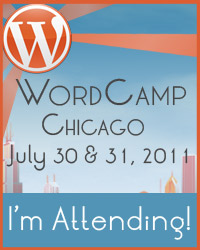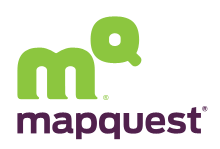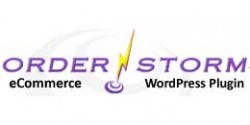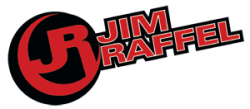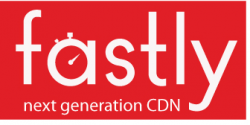I posted these summaries of the sessions I attended over on my Google+ ![]() first, and Mary asked me to share them here. I’ve added links to the speaker’s Google+ profiles & Twitter streams to the session lists, in case you’d like to keep connecting with any of them. The ones in bold link to the summaries below.
first, and Mary asked me to share them here. I’ve added links to the speaker’s Google+ profiles & Twitter streams to the session lists, in case you’d like to keep connecting with any of them. The ones in bold link to the summaries below.
User Track
- Nile Flores

 Setting Up Your WordPress Site Like a Pro
Setting Up Your WordPress Site Like a Pro - Dre Armeda

 WordPress End-User Security
WordPress End-User Security 
- Mary DuQuaine

 The Digital EcoSystem
The Digital EcoSystem - Jim Raffel

 & Shelby Sapusek
& Shelby Sapusek 
 : He Said / She Said
: He Said / She Said - MJ Tam

 Building Blocks to a Successful Blog
Building Blocks to a Successful Blog - David Murray

 Building Your Content Bubble
Building Your Content Bubble 
- Nicole Yeary

 WordPress as Your Social Media/SEO Hub
WordPress as Your Social Media/SEO Hub 
- Bob Dunn

 How to Attract More Readers with a User Friendly WordPress Site
How to Attract More Readers with a User Friendly WordPress Site 
- TJ List

 Essential HTML and CSS for Bloggers and Business Owners
Essential HTML and CSS for Bloggers and Business Owners
Development Track:
- David Tufts

 Beyond the Theme – WordPress as API
Beyond the Theme – WordPress as API 
- Jake Goldman Editing the Visual Editor
- Mert Sahinoglu

 Advanced SEO – Thinking Like a SearchBot
Advanced SEO – Thinking Like a SearchBot - TJ Stein

 Developing Fast & Scalable Servers for WordPress
Developing Fast & Scalable Servers for WordPress - Jason McCreary
 Configuring WordPress for Multiple Environments
Configuring WordPress for Multiple Environments - Brian Richards

 Developing for Success, or Any Fool Can Do This
Developing for Success, or Any Fool Can Do This 
- Rachel Baker
 You Are the Project Manager (Whether You Like it or Not)
You Are the Project Manager (Whether You Like it or Not) - Andy Stratton
 Diet Pills, SEO, and Theme Frameworks
Diet Pills, SEO, and Theme Frameworks - Garth Koyle

 The $40,000 WordPress Business Plan
The $40,000 WordPress Business Plan - Becky Davis
 A Tale of Two Shopping Carts
A Tale of Two Shopping Carts - Gloria Antonelli

 Tips for Improving Support Documentation for Themes & Plugins
Tips for Improving Support Documentation for Themes & Plugins
UnConference Sessions:
- Lisa Ghisolf

 How to Hire (Developers, SEO Experts, hosting companies, etc.) for Your Website
How to Hire (Developers, SEO Experts, hosting companies, etc.) for Your Website 
- Keith Johnston

 Cool WP Applications
Cool WP Applications - Heather Acton

 WP Frameworks (or not…)
WP Frameworks (or not…) - Scott Offord

 SEO I
SEO I - Andrea Geller
 WP & Real Estate
WP & Real Estate - (Didn’t catch the name): WP Local Development Software
- Jason McCreary
 E-Commerce
E-Commerce - Bob Dunn

 WP Entrepreneurship
WP Entrepreneurship - Scott Offord
 SEO II
SEO II - John James Jacoby

 Buddypress
Buddypress
My Summaries
David Tufts: Beyond the Theme – WordPress as API ![]()
After discussing the benefits of moving to WP MS he demonstrated an extremely impressive preview of his KickPress plugin. On his alpha site (http://alpha.rbcministries.org/) he’s using it to create custom post types and taxonomies, then integrate those into the theme using ajax scripts to load content dynamically or filter content with new queries or even spread it out to social media and mobile apps through new APIs. He demonstrated 3 ways to implement the api across the theme and mentioned the NPR API is a good example of potential uses: http://www.npr.org/api/index
His team of 4 will be releasing KickPress when they’ve reviewed the security options for allowing others to build on that API (how long – 2 weeks??) that he’s using to create custom post types and taxonomies, optimized with ajax scripts, to automatically load content across his sites, filter content easily, and spread that content to social media and mobile apps automatically through new APIs. I’ll definitely be playing with this thing: http://www.kickpress.org/getting-started
The full slides are up here: http://www.slideshare.net/davidscotttufts/beyond-the-theme-using-wordpress-as-an-api
Dre Armeda: WordPress End-User Security ![]()
This session started with basic personal security (antivirus, internet connections, browsing, passwords) then moved to site management issues (check your host! cheap may = bad security) and covered a nice range of WordPress security tips, including updating, plugin/theme review, secret keys, SSL security, .htaccess in wp-admin, logins, folder permissions, etc.
A version of his slides (lots of links on them too) is up from a previous WordCamp here: http://www.slideshare.net/armeda/renotahoe-wordcamp-2011-wordpress-end-user-security-dre-armeda
Keith Johnston: Cool WP Applications
As an unconference session, the conversation covered everything from ways to use WordPress overall to favorite plugins and plugins we WISH existed. Fausto Fernós was looking at podcasting/buddypress/developing, Joshua Alexander and Matthew Patulski mentioned some great plugins. Others were interested in the potenial of plugins to help develop mobile-friendly websites, with wp-touch and wp-droid topping the list.
An incomplete list of the plugins mentioned in the discussion: chartbeat, manage-wp, measuremyseo, pixelpipe, wp-droid, wp-touch, mingle forums, bbpress, headspace2, event espresso, wp community, directory plus, paid business directory, amr list c, ezpz, backup buddy
Josh Feck: Slow Cooked WordPress ![]()
My takeaway? He loves food metaphors (not a bad thing) and has a lot of practical tips to help make your wordpress setup and customization not come back to bite you later (see slides for details). I think I just created some sort of cannibal food mixed metaphor there. There were a lot of questions about setting up local development environments and tools you can install to make it easier to edit code accurately, which resulted in an extra UnConference session later.
slides: http://www.slideshare.net/joshfeck/slowcooked-wp
Mary A. DuQuaine: The Digital EcoSystem
I think the main point of this session was knowing your audience, but not just from a one-way communication. She talked about getting to know the people you’re addressing in a variety of venues, from social media to online communities to real-world experiences and personal networking. She recommends centering your content on your blog, and thinking carefully about audience when you share it – but also getting out there yourself to build connections in real life.
Brian Richards: Developing for Success, or Any Fool Can Do This ![]()
This talk was funny and pithy, with a lot of Twitter activity as everyone was all online at the end of the day. He started his WordPress development career without any prior training in business/developing/design, so this session covered his personal and business challenges, tips on dealing with customers and scaling projects, and how to reach a demonstrable level of success (by defining success for yourself). He also just made his StartBox framework free the night before his session and is starting a Developers Club.
slides: http://www.slideshare.net/amawesome/developing-for-success-or-any-fool-can-do-this
Rachel Baker: You Are the Project Manager (Whether You Like it or Not)
Another relatively new freelancer (1 year 30 days), she covered the importance of translating/defining a developer’s role with your clients as you set up your own business. Don’t expect clients to know what you can do and what you won’t do unless you tell them. Know who is involved (from content to design) and assign goals and roles to keep your costs and deadlines under control. It’s essential to have a PM system in place and push until everyone uses it. Be tactfully annoying, staying positive and documenting everything just in case. Then you can ramp up charges for extras if needed.
Andy Stratton: Diet Pills, SEO, and Theme Frameworks
Many sessions talked about careful choices when using free materials out there for WordPress. This talk tackled the perils of customizing existing themes & frameworks in a client-developer relationship. Clients may think pre-built themes or frameworks are a magic fix to (SEO, design, functionality). Developers who prove the overhead in re-purposing anonymous code can save clients time and money and save themselves major headaches. Know their requirements, start with the least possible coding/db calls and you’ll end up with a better site. If you do customize an existing theme/framework/plugin, use child themes and stick to core functionality wherever possible to keep it all secure, flexible, and easy to update.
Nicole Yeary: WordPress as Your Social Media/SEO Hub ![]()
Starting out on SEO, she recommended beginning at the source: read Google’s docs on SEO and play with their Webmaster tools (but keep other search tools in mind too). When you know what to look for, you’ll know what tools will save you time and be most effective. She recommended a number of tools, from Woo themes and key plugins to tools like HootSuite that let you build out from WordPress to other social media. Details available in her slides: http://www.slideshare.net/ChicagoZen/wordpress-as-your-social-media-seo-hub
The discussion of comments afterwards covered a range of optons (Moderated? Login required? In local tables or through a plugin? What spam filter?). Here are a few key names mentioned: DisQus, CommentLove, LiveFyre, Intense Debate, ReplyMe
Bob Dunn: How to Attract More Readers with a User Friendly WordPress Site ![]()
What are key choices that anyone could focus on to improve their website? Headers with relevant taglines & images, navigation that’s quick & easy to use (hint: custom menus, effective categories/tags), optimizing RSS with Feedburner to create e-mail updates, make it easy to share your content, have a good about page, contact forms, and photos (they can bring in 50% more views, but be intriguing, not literal).
Find an earlier version of these slides online here: http://www.slideshare.net/catseyemarketing/wordcamp-seattle-2011-presentation
As a photographer/librarian, I love the last point but always want to emphasize respecting the creator: learn about licenses, esp. Creative Commons, and always link back so you can keep using great free content! I recommended 3 sites to get started: http://compfight.com for flickr CC searching, http://flickr.com/commons for public domain photos (often older), and http://iconarchive.com for logos & illustrations
John James Jacoby: BuddyPress Unconference
The final session I attended, the Buddypress Unconference, went much longer because we were able to have John James Jacoby moderating it, one of the core developers for Buddypress (I was there until about 4pm). If anyone’s interested, I have many detailed notes I could send along.
Key points:
- http://Buddypress.org is an awful example of buddypress, but you can help with the new 1.5 code by getting involved at http://testbp.org
- new 1.5 version of Buddypress will have a revamped default theme that allows custom menus and a lot of styling upgrades: “if everyone uses the default, the default shouldn’t be ugly”
- http://BBpress.org is coming out in 2.0 soon, redesigned based on custom post types & taxonomies so it will work in any theme!
- key issues slowing down 1.5: They will probably be moving to custom post types & taxonomies, which may raise issues of data federation & scalability on large-scale installations. (But will make it more server neutral – hurray for those of us stuck in IIS!)
- They all want more community input, but the complexity of creating themes to match the plugin features and having so many features enabled at the start makes this a less flexible platform for many
- Many people there were interested in the potential of APIs (like kickpress from David Tufts??) to move buddypress in the direction of “Diaspora,” at least on a theoretical level. The issue is in pulling data and server connections, though technically a revamped buddypress based more on core wordpress features should make it easier to “talk to” other instances
Beyond WordCamp
I have a lot more detailed content in my notes and would be happy to send them along if anyone missed a session and wants more information before the slides/recordings are all posted. You can contact me easily through the links on my Google+ profile ![]() .
.
If you already use Google+, follow me or comment on this post to get added to a WordPress circle where I’ll be posting more resources as I follow up on things I caught in passing around the edges of these sessions. I’d love to see what you’re doing too!

